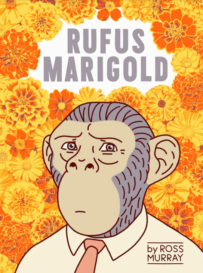Fante an Honest Review
Like Hubert Selby Jr. before him, Dan Fante refuses to flinch. His writing is characterised by honest storytelling. He doesn’t try to sound like a writer or obstruct the flow of the story in any way. He has no apparent intention of his work being analysed, and seems to be unconcerned with literary worth, doesn’t fill space with unnecessary allusions or metaphors, he’s not the pretentious know-it-all smirking from behind a screen. Dan Fante’s work does not ape anybody, doesn’t try to evoke another era, doesn’t attempt to be surreal, contemporary, post-modern or book club material. While the Booker Prize scratches its PR chin and newspapers ponder the state of publishing, Dan Fante continues to write.
I had the pleasure of reading Fante: A Family’s Legacy of Writing, Drinking and Surviving, Dan Fante’s latest book, while on my train travels. It felt like I was holding a close friend and listening to him speak his secrets into my ear alone, reminded of when I was a boy and was carrying a Jack London novel around with me like priceless treasure to soothe me and give me the support and friendship I needed. I held my copy of Fante tight, proud to be reading it while others around me stared into their laptops, drank their coffees.
What makes Fante appealing? The hard, destructive, living. The life. The Fantes haven’t lived in halves. They go after life, good or bad, rushing into it with impatience and passion with no worry of safety or cosiness. Dan Fante’s demons are mainly inside his own head, rage, anger, disgust. He drinks to quieten the voices, to make him feel like himself. Dyslexic, a loner, outsider, Dan Fante doesn’t fit into a conventional nine to five world. For the Fantes, it’s never a question of being content, accepting, winding down, pressing the pause button, chilling. It’s the breakneck outcast element that makes me want to keep reading Dan Fante, as well as the disregard for self-pity.
In Fante, Dan Fante deals with addiction and mental illnesses, two themes that he also explores in his fiction. What separates Dan Fante from Bukowski is that Dan Fante avoids self-mythologising, he just tells it plain and leaves it at that. Here are episodes from his life told in pacey detail, paragraph after paragraph of mishaps, run-ins, blackouts, fucks, stormy relationships. Learning from mistakes and making many more mistakes after that. It feels like fiction, as his fiction feels like memoir. There’s an impressive humanity to Fante, shown through the fallibility of both John and Dan Fante. I love it. So often, writers mask their humanity, or their characters’ frailties with technique. Style over substance. Bullshit, it comes out in reams. Takes up hundreds, thousands of pages. Fills up bookshops.
As a fan of both John Fante and Dan Fante’s work, I was curious to read of the Fante family background. I couldn’t bring myself to read Stephen Cooper’s biography of John Fante, just wasn’t lucid enough to tackle the most lucid of writers. Dan Fante writes of his grandparents, parents and family in general, starting off unhurried, giving vivid examples of his grandfather going to work and live in America, his parents’ marriage and his brother, Nick’s, bullying and jealousy. The book also deals with the many jobs that Dan Fante has had over the years, from carny to taxi driver, each one survival-driven but a hell of an experience. You can’t buy experience like that. The book even goes Dashiell Hammett in style when Dan Fante turns private investigator and starts rummaging through peoples’ dirty laundry while carrying a piece. It’s entertaining, cutting stuff, all the way, sick, plenty of it and madness as the turbulent lifestyle builds under your eyes, and Dan Fante crosses the line, yours and mine, into drugs and hookers and lifestyle choices, pissing money away, time down the fucking toilet.
There is nothing romantic or attractive about living on the edge, although anything may seem attractive when you’re stuck in an office typing numbers into spreadsheets. In Fante, it’s all bodily fluids and failed suicide attempts, winning and losing as one. What makes Fante zip is the lack of navel gazing. There is very little time spent thinking and more seems to happen in the average chapter than in a hundred pages of most other writers’ work. Fante is all about the story and the characters that come rushing through Dan Fante and John Fante’s lives. And because of that it’s invigorating. I would suggest anyone with an interest in real literature, that is to say literature beyond hype or PR, to read it.
The following quote from Fante is John Fante’s advice to Dan Fante, sound advice for any writer worth their salt:
“If what I write is good, then people will read it. That’s why literature exists. An author puts his heart and his guts on the page. For your information, a good novel can change the world. Keep that in mind before you attempt to sit down at a typewriter. Never waste time on something you don’t believe in yourself.”
Tags: bt, Bukowski, dan fante, dan fante memoir, dan fante memoir review, dan fante review, Drinking and Surviving, fante, fante memoir, Fante: A Family's Legacy of Writing, Hubert Selby Jr, John Fante














